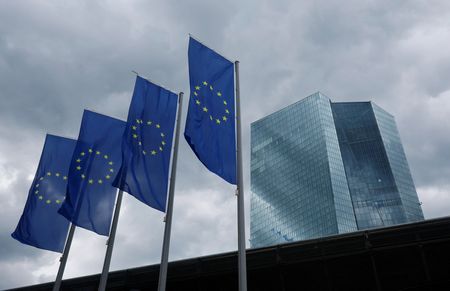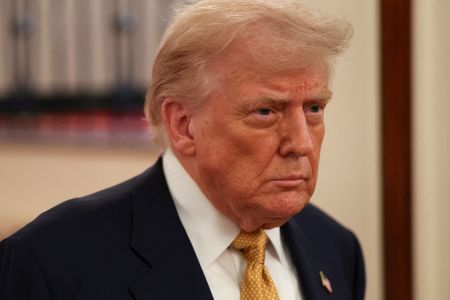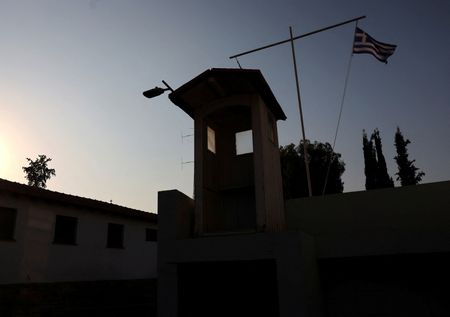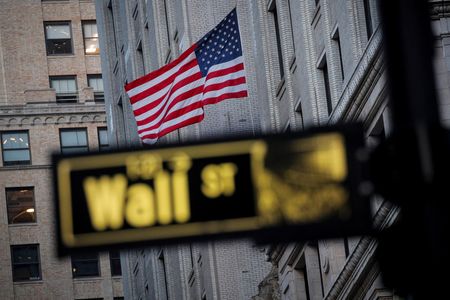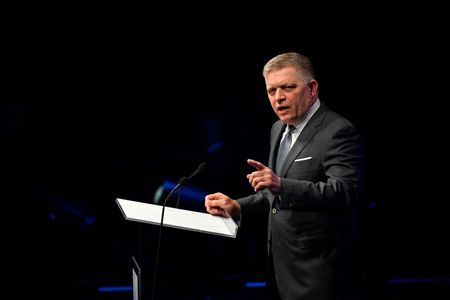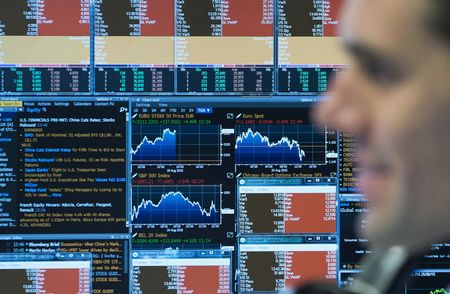By Indradip Ghosh
BENGALURU (Reuters) -A steady outlook for the euro zone economy remains intact, at least for now, according to most economists in a Reuters poll, despite a recent U.S. threat of a 30% tariff on European Union goods.
The EU has warned of retaliatory measures if a deal is not reached before U.S. President Trump’s proposed tariffs take effect on August 1, adding complexity for European Central Bank policymakers before next week’s policy meeting.
The 30% duty is steeper than the ECB’s worst-case projection last month of 20%. But those uncertainties will not be enough to derail the central bank’s intention to pause its year-long rate-cutting campaign, some ECB policymakers told Reuters.
All 84 economists in a July 10-17 Reuters poll expected the central bank to hold the deposit rate at 2.00% on July 24.
Respondents were hesitant to change economic forecasts, citing the lack of clarity around the trade conflict, but some hinted risks were skewed to the downside.
Poll median forecasts suggested the euro zone economy will expand 1.0% this year, pick up to 1.2% next year and 1.5% in 2027, largely unchanged from a month ago.
“A deal that would prevent the 30% is still likely. It remains our base case scenario … we haven’t changed that. But I’m leaning towards a more downbeat base case with a high risk there won’t be a deal,” Carsten Brzeski, global head of macro at ING, said.
“Given everything is even more uncertain, another preemptive rate cut doesn’t make sense … There is still a point to be made to cut rates in September and this is not so much to support growth but driven by the stronger euro that would continue if we were to see a deal.”
The euro has strengthened 12% so far this year against the U.S. dollar, one of the key reasons behind the recent ease in inflation. The common currency will gain nearly 3.5% to hit $1.20 in a year, a separate Reuters survey suggested.
A more than 58% majority, 49 of 84, predicted the ECB would cut rates once more, likely in September, a slightly bigger majority than around 53% last month. Twenty economists said there would be no more reductions, while only 15 said two cuts were coming.
That coincides with a steady price outlook which showed inflation averaging around 2%, where the ECB targets it to be, over the coming three years, largely the same as predicted in a June survey.
“The ECB can’t say they are done because there’s so much fundamental uncertainty. But the burden of proof for further rate cuts is quite high,” Bas van Geffen, senior macro strategist at Rabobank, said.
“The risk is a worse outcome. A deal is not guaranteed and it’s become pretty clear Europe would not be very happy with a 30% tariff. They won’t just accept that. Europe will initially retaliate with their own rebalancing tariffs.”
Germany’s economy – the largest in the region – will grow a mere 0.2% this year and 1.2% in 2026, according to the poll, largely unchanged from April’s forecasts. That was despite optimism around infrastructure spending plans.
Growth in France will be 0.5% this year and 0.9% in 2026, the poll predicted.
(Other stories from the Reuters global economic poll)
(Reporting by Indradip Ghosh; Polling by Renusri K, Mumal Rathore and Anant Chandak; Editing by Ross Finley and Andrew Heavens)

